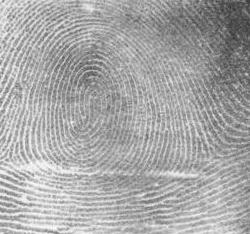 From Jessica Gabel Cino at RealClearScience:
From Jessica Gabel Cino at RealClearScience:
For decades, there have been concerns about how the legal system uses forensic science. A groundbreaking 2009 report from the National Academy of Sciences finally drew the curtain back to reveal that the wizardry of forensics was more art than science. The report assessed forensic science’s methods and developed recommendations to increase validity and reliability among many of its disciplines.
A key problem, Cino notes, is the unjustified reliance that TV crime dramas encourage the public to place in the field.
Among the forensic science they assessed, PCAST found single-sourced DNA analysis to be the only discipline that was valid, both foundationally and as applied. They found DNA mixture evidence – when DNA from more than one person is in a sample, for instance from the victim and the perpetrator, multiple perpetrators or due to contamination – to be only foundationally valid. Same with fingerprint analysis.
Firearms identification had just the potential for foundational validity, but the research that could support it hasn’t been done yet. Footwear analysis lacked studies even showing potential for foundational validity. And bite mark analysis has a low chance of achieving any validity; the PCAST report advised “against devoting significant resources” to it. More.
Good information and suggestions offered. But even DNA analysis could be prey to corruption in terms of falsified results: For example,
Dookhan’s misconduct is at the heart of a far-reaching scandal in forensic science. The lab where she worked, the William A. Hinton State Laboratory Institute, was closed in 2012 by Gov. Deval L. Patrick (D). Cases involving more than 40,000 people may have been affected by her misdeeds, according to a report released in August by the governor’s office. According to the Boston Globe, agencies dealing with the aftermath of the scandal have spent $8.5 million so far this year reevaluating cases and evidence. More.
And perverse incentives: In some U.S. states, labs are paid in part by conviction, not for correct results.
Also consider: The assured results of modern forensic science: Incompetent or corrupt investigators can pervert the course of justice by definition, but Balko and Koppl reveal a deeper, more serious problem: Well-meaning and competent investigators who are influenced by their bosses’ views or cultural assumptions may be far more damaging in the long run because … everyone believes them!
Ultimately, any system invented by a human being for detection can eventually be bested by a slightly smarter human. AI won’t help because smarter programmers would best the newly “unbeatable” system. This is a general fact about human consciousness, bound up with the nature of reality.
We can only approximate certainty. A danger lies in unjustified trust in any science as an infallible guide to reality.
See also: Forensic DNA evidence in doubt? (low copy analysis)
Is forensics really a science.? Yes, and it suffers from the same problems as any other.
and
Data basic: An introduction to information theory
Follow UD News at Twitter!